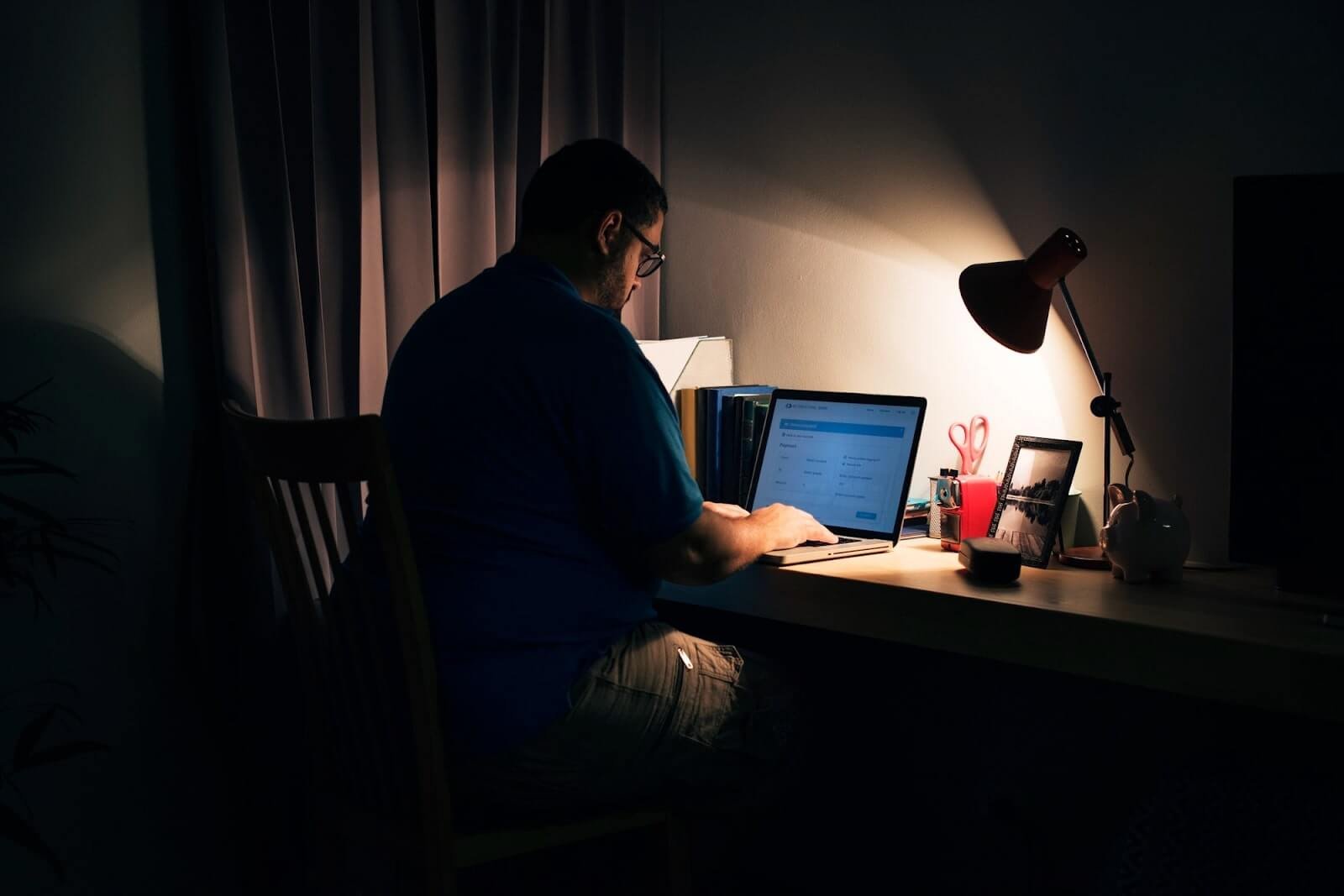
Technology continually gives us new ways to connect, learn and share, and life wouldn’t be the same for most of us without its convenience.
However, as online interactions multiply, so do the opportunities for malicious entities to exploit personal data.
But it also exposes us to certain crimes, and it’s important to understand these risks so you know what you can do if you become a victim. Here, we’ll cover the act of “doxxing”, including what constitutes an offence and how it can be punished under the law in Singapore.
What Is Doxxing?

Doxxing, or doxing, involves the act of publicly revealing previously private information about an individual or organisation, typically via the internet. This malicious act can have serious consequences for the victims and is increasingly being used as a form of harassment or intimidation.
Doxxing is also the deliberate act of broadcasting private information about someone without their consent. Essentially, doxxing involves taking what is private and making it publically accessible, often with harmful intentions.
With the rise of digital platforms and easy access to personal data, doxxing has become a significant concern, particularly as it has only recently been addressed by laws such as Singapore’s Protection from Harassment Act (POHA), which, as of January 2020, recognises doxxing as an offence.
The identifying information could be the following:
- Name
- Date of birth
- Residential address
- Email address
- Telephone number or Contact details
- National registration identity card number
- Family background
- Place of employment or education
- Passport number
- Signature
- Password
- Photos or videos of the person
- Anything else that may be used to identify the person or someone related to them
Types Of Doxxing Offences In Singapore

We can further classify Doxxingg into different types based on the intent the Doxxer has towards the victims. Three types of doxxing are considered offences under Singaporean law:
#1 To Cause Harassment, Alarm Or Distress
In Singapore, certain forms of doxxing are criminal offences under the amended Protection from Harassment Act (POHA), specifically under Section 3(1)(c).
This section deals with doxxing that aims to cause harassment, alarm, or distress to the victim. This offence is particularly concerned with the misuse of personal information to negatively impact an individual’s life.
In this form of doxxing, personal information such as addresses, phone numbers, or workplace details are disclosed online without consent, often leading to emotional distress and a violation of personal privacy.
Scenarios Leading to Emotional Distress
- Social Media Posts: An example of this offence includes sharing a person’s mobile phone number and derogatory comments on social media accounts. This act invites others to harass the victim with unsolicited calls or messages, significantly invading their privacy and peace.
- Online Forums and Community Groups: Publishing personal details such as home addresses, work details, or sensitive information like financial accounts on online forums can lead to severe harassment. Victims may face unwanted visits, spam emails, or even threats, disrupting their daily routines and mental health.
- Public Data Misuse: Utilising information from public databases or government records to track a person’s family members or their physical addresses without their consent and publishing them to facilitate violence or create fear.
Under Section 3 of the amended POHA, the act of publishing identifying information to cause harassment, alarm, or distress is punishable.
Convicted individuals may face a fine not exceeding $5,000 or imprisonment for a term not exceeding 6 months, or both. This penalty aims to deter such malicious acts and protect individuals from online harassment.
#2 To Cause Fear Of Violence

According to Section 5 of POHA, doxxing that causes fear of violence might involve the dissemination of real-time locations, daily routines, or other sensitive data that makes the victim vulnerable to physical attacks or stalking.
When doxxing escalates to the point where it causes fear or the potential for physical harm, it poses a significant threat to individual and public safety.
This could involve releasing sensitive information like real-time locations or work schedules, making the victim vulnerable to stalking or other forms of violence.
For example:
- Publishing Work or Home Locations: Sharing someone’s physical address or workplace on social media with threats exposes them to the risk of physical violence. For instance, if an individual’s home address and a threatening message such as “They need to be taught a lesson” are posted online, it can instil legitimate fear of impending harm.
- Sensitive Personal Data: Releasing information like vehicle registration details or personal schedules can lead someone to legitimately fear being intercepted or attacked.
- Threatening Messages Combined with Personal Details: For example, if a person’s photo, home address, and a call to action like “Who is coming to beat him up?” are posted, it directly facilitates and encourages physical assault.
Revealing personal information with the intent, knowledge, or reasonable grounds to believe it could lead to unlawful violence against the person or their associates is a punishable offence.
Convicted individuals may face a fine of up to $5,000, imprisonment for up to 12 months, or both. Repeat offenders may face double penalties.
#3 To Incite Violence
Doxxing can be used to incite violence. This involves publishing personal information to incite violence against an individual. This takes doxxing from harassment or intimidation to an act that could be part of a larger criminal conspiracy to facilitate violence and cause physical harm.
For example, suppose an individual’s personal details like their home address or mobile phone number are posted online with encouragement for others to harm them. In that case, the repercussions can be immediate and terrifying, not only for the individual but also for their family members.
This form of doxxing reaches beyond simple privacy invasion. It potentially serves as a catalyst for physical violence.
Under the law, such actions are severely punishable. Perpetrators can face penalties, including fines up to $5,000 and imprisonment for up to one year. The legal framework is designed to address these issues comprehensively.
Section 5(1A) of the amended POHA highlights that publishing personal information with the intent to facilitate violence, or even if it is foreseeable that violence could occur, constitutes an offence.
This holds true even if the victim is unaware of the information being shared. The intent behind the publication, whether to incite violence directly or through negligence, establishes the grounds for legal action.
For instance, if person A publishes personal details about person B, and this act facilitates violence against B or B’s relatives, A could be legally liable. This liability persists regardless of B’s awareness of the information being shared.
The law’s scope extends to protect individuals from the indirect consequences of doxxing, highlighting the severity with which such acts are viewed.
What Are The Differences Between The Three Doxxing Offences

In Singapore, doxxing is taken seriously, with specific legal provisions outlining different forms of this offence. The key differences between these doxxing offences lie in the intent, impact, and how they are treated under the law.
Intent And Impact
- Causing Harassment, Alarm or Distress (Section 3): This offence requires the publisher to have the intent to cause harassment, alarm, or distress to the victim. It encompasses scenarios where personal details such as home addresses, phone numbers, or other sensitive information are published to upset or intimidate the person. The impact here is psychological, affecting the victim’s mental health and daily life significantly.
- Causing Fear of Violence (Section 5): For this offence, the requirement focuses on the victim’s fear. It is sufficient if the publisher’s actions are known, or ought to have been known, to likely cause the victim to fear that violence will be used against them or others. This form does not necessarily require intent to scare the victim, just that the fear of violence is a foreseeable outcome of the doxxing act.
- Facilitating Violence (Section 5(1A)): Similar to causing fear of violence, this offence can be established without direct intent to cause harm. The key here is the physical safety of the victim and others, which can be directly jeopardised by the doxxing act.
Section 3 offences are treated with a focus on the psychological trauma inflicted on victims. Legal proceedings require proof of intent to harass or distress, making it necessary for law enforcement to investigate the publisher’s motives.
Conviction can result in a fine of up to $5,000 or imprisonment for up to six months.
Section 5 offences, concerning fear and facilitation of violence, involve law enforcement assessing the potential or actual harm that could result from the doxxing act rather than the publisher’s explicit intent.
This can lead to a more nuanced investigation, considering how the published information could be used by others to harm the victim. Penalties for these offences may include a fine of up to $5,000 or up to one year in jail, reflecting the severe nature of inciting or facilitating violence.
When Is Not Considered As Doxxing?
Not all cases of revealing personal details amount to doxxing, especially when the information is shared within lawful contexts or with consent.
Information that is already in the public domain, such as contact details listed on a company website or information shared for legitimate purposes, does not qualify as doxxing.
Sharing Information In The Public Domain
- Public Figures: Information about public figures that is already available in public records, such as government websites, is not considered doxxing. For instance, sharing a politician’s publicly listed contact details for constituents to reach them.
- Journalistic Purposes: Journalists often publish personal details to provide context or background to news stories, provided these details are already public or shared with consent. This is essential for creating a factual account of events and is protected under freedom of the press.
- Online Forums for Public Safety: In online forums where sharing videos of reckless driving or warning about potentially harmful behaviours is common, posting such content for public awareness and safety, accompanied by factual descriptions, does not qualify as doxxing.
Legitimate Sharing With Authorities
- Emergency Situations: Disclosing someone’s information to emergency services or law enforcement to assist in a crisis, like reporting a person involved in a car accident, is necessary and lawful.
- Legal Requirements: Providing personal details during legal proceedings or when required by law, for example, in court documents or to comply with a police investigation, is not doxxing but a legal obligation.
The Role Of Consent
Consent plays a role in differentiating lawful information sharing from doxxing. When individuals voluntarily share their private information for specific purposes, it does not constitute doxxing. Here are some key aspects of consent:
- Informed Consent: This is when a person clearly understands and agrees to disseminating their information, such as celebrities or professionals sharing contact details for business purposes.
- Incidental Sharing: Sometimes, personal information might be shared for educational or professional purposes, like at a conference or a seminar, where participants’ details are shared among attendees. If consent is given, it does not count as doxxing.
- Defensive Sharing: Posting personal information to defend oneself in a public dispute, where facts are necessary to clarify the situation, often falls outside the scope of doxxing, especially when aimed at protecting oneself or others from harm.
If accused of doxxing but the sharing was reasonable under the circumstances, the accused can present a defence by proving that:
- Reasonable Conduct: The sharing of information was justified, such as responding to a public accusation or participating in a community safety alert.
- Lack of Intent to Harm: Demonstrating that there was no intent to harass, threaten, or cause distress but rather to inform or respond to a public concern.
What To Do If You Are A Victim

Being a victim of doxxing can be an extremely stressful and frightening experience, especially if it leads to threats of violence or actual harm.
In Singapore, where doxxing is a recognised criminal offence under sections 3 and 5(1A) of the Protection from Harassment Act (POHA), victims have several avenues for recourse.
Here are practical steps to take if you find yourself a victim of doxxing.
Document The Evidence
The first step is crucial: gather and secure evidence of the doxxing. This involves:
- Taking Screenshots: Capture all instances where your personal information appears online—be it on a social media site, an online forum, or a public database. Document any instance of malicious intent where your private data, such as credit card details or bank account information, has been disclosed.
- Recording Communications: Keep records of threatening or abusive communications, especially if they originate from reverse mobile phone lookup or if your mobile phone number has been used against you. If you receive threatening calls, emails, or messages, keep a log of these communications. For phone calls, note down the time, date, and content of the conversation.
- Preserving Related Interactions: Sometimes, the context around the doxxing incident can also serve as crucial evidence.
If interactions related to the doxxing are traced back through tracking usernames or a WHOIS database, save this information. This can prove crucial, especially if domain registration information was used to reveal your details.
Legal And Law Enforcement Actions
After securing the evidence, it’s important to take legal action:
- Contacting the Police: File a police report detailing the incident, particularly if tracking IP addresses of doxers indicates a local threat. Singapore’s authorities treat doxxing seriously, especially if there’s evidence of stalking social media platforms or using your information in a threatening manner.
- Consulting a Lawyer: Speak to a lawyer specialising in cyber law or personal harassment.
They can advise on the possibility of filing a civil lawsuit for damages or guide you through applying for a Protection Order under Section 12 of the POHA, which can compel the perpetrator to stop publishing your information and may result in removing the content from internet platforms.
Securing Online And Financial Accounts
To prevent further damage:
- Securing Online Accounts: Update your security settings across all platforms. Change passwords and enable multi-factor authentication on all important online accounts, especially your email, social media accounts, and financial accounts. Consider using a password manager to generate and store complex passwords. Also, create separate email accounts for different purposes to limit damage if one is compromised. Consider hiding domain registration information if you own websites to prevent doxxers from obtaining your personal details.
- Contacting Financial Institutions: If sensitive financial information has been disclosed, contact your financial institutions, such as your credit card provider or credit card company, if your financial accounts or bank account details are compromised. Discuss options to protect financial accounts, such as new account numbers or additional security measures. They can monitor for suspicious activity and, if necessary, freeze your accounts.
- Using Privacy Services: Implement measures like a virtual private network (VPN) and use WHOIS search privacy options to prevent further exposure of your private information. Regularly conduct mobile phone lookups and reverse lookups to check if your information is being misused.
Emotional And Psychological Support
The impact of doxxing isn’t just financial or legal; it can also take a significant toll on your mental health:
- Seeking Support: Reach out to support groups that help victims of online harassment. Counselling services can also be beneficial in managing the stress and fear that comes from being doxxed.
- Maintaining Privacy: Consider additional privacy measures like requesting data brokers to remove your information from their databases and setting up Google Alerts for your name to monitor new mentions of your personal information online.
Conclusion On The Meaning Of Doxing And Its Types
The act of doxxing has evolved from just online harassment into a pressing social issue. Singapore has responded with a robust legal framework to penalise perpetrators and protect victims. From causing emotional distress and harassment to inciting violence, doxxing can devastate individuals and communities.
In Singapore, the Protection from Harassment Act (POHA) is a cornerstone for tackling various forms of doxxing and online harassment, supplemented by other statutes that address more severe consequences like physical violence and intimidation. While these laws offer a means to hold offenders accountable, the evolving nature of online behaviours calls for ongoing public awareness and legal scrutiny.
This makes it crucial for both legal practitioners and the general public to understand the intricacies and consequences of different types of doxxing. Remember, you should always take care when posting your personal information online so that you won’t be easily found.
Have you been doxxed or been accused of doxxing? The experienced criminal lawyers in Singapore at Tembusu Law can help. If your situation also involves any family law disputes, our divorce lawyers in Singapore are available to provide comprehensive support. Contact us now.
Frequently Asked Questions About The Doxxing Definition And Its Types
Can I Be Charged For Doxxing Even If I Didn’t Intend To Harm Anyone?
Yes, you can still be charged if you publish personal information which causes them harassment, alarm, or distress, even if there is no actual intent to harm them.
Is Sharing Public Information Considered Doxxing?
Sharing information that is already publicly available could still constitute doxxing if done with the intent to harass, alarm, or distress someone.
Are There Any Defences Against Doxxing Charges?
Defences could include lack of intent to harm or the absence of actual harm caused, but the specifics would depend on the case. Legal representation is strongly advised for anyone facing such charges.
How Do Singapore’s Doxxing Laws Apply To Minors?
Minors can also be held accountable under Singaporean law. Still, if found guilty they are typically processed through the juvenile justice system, which focuses more on rehabilitation than punishment.